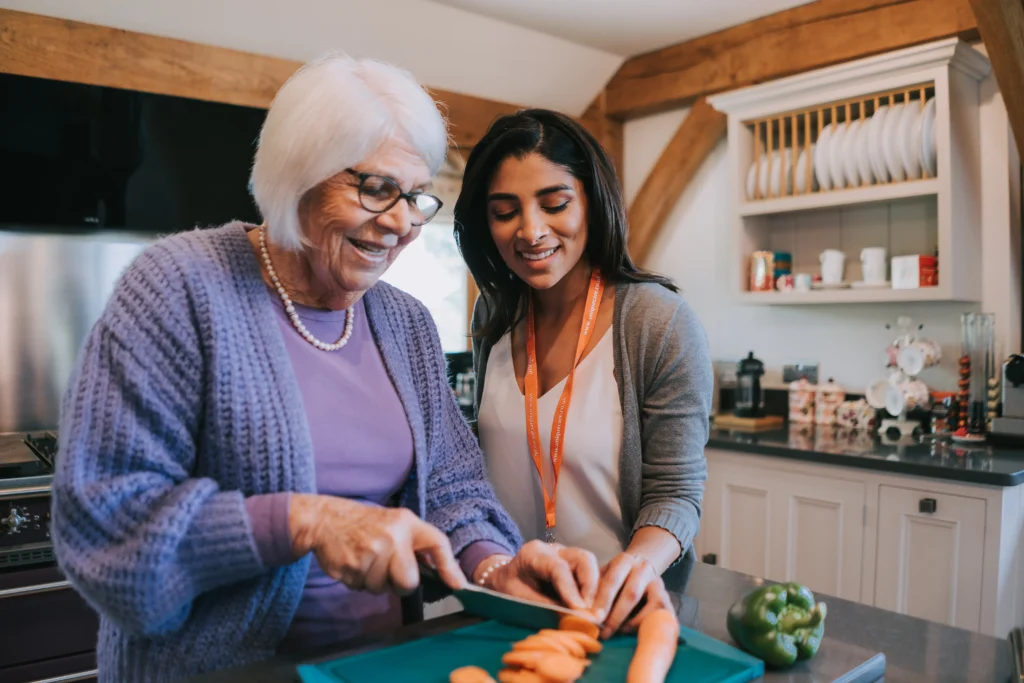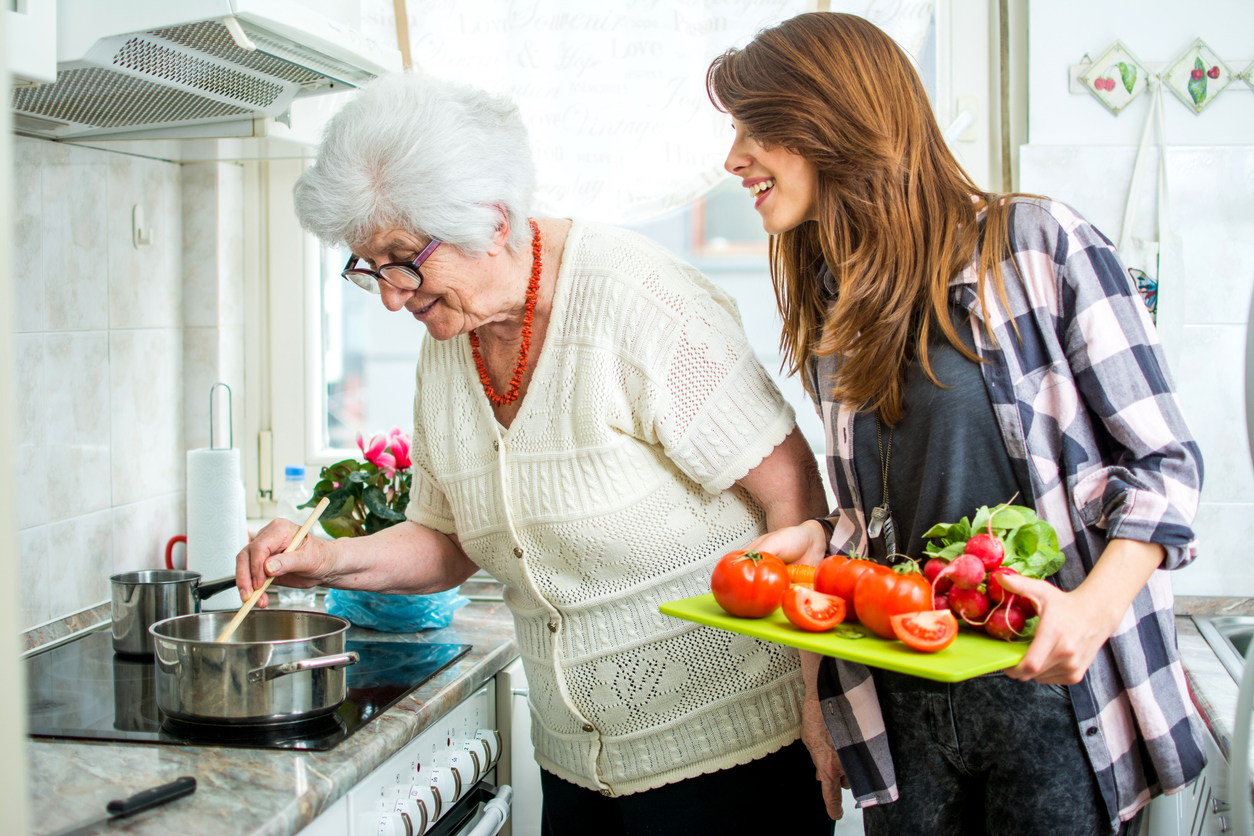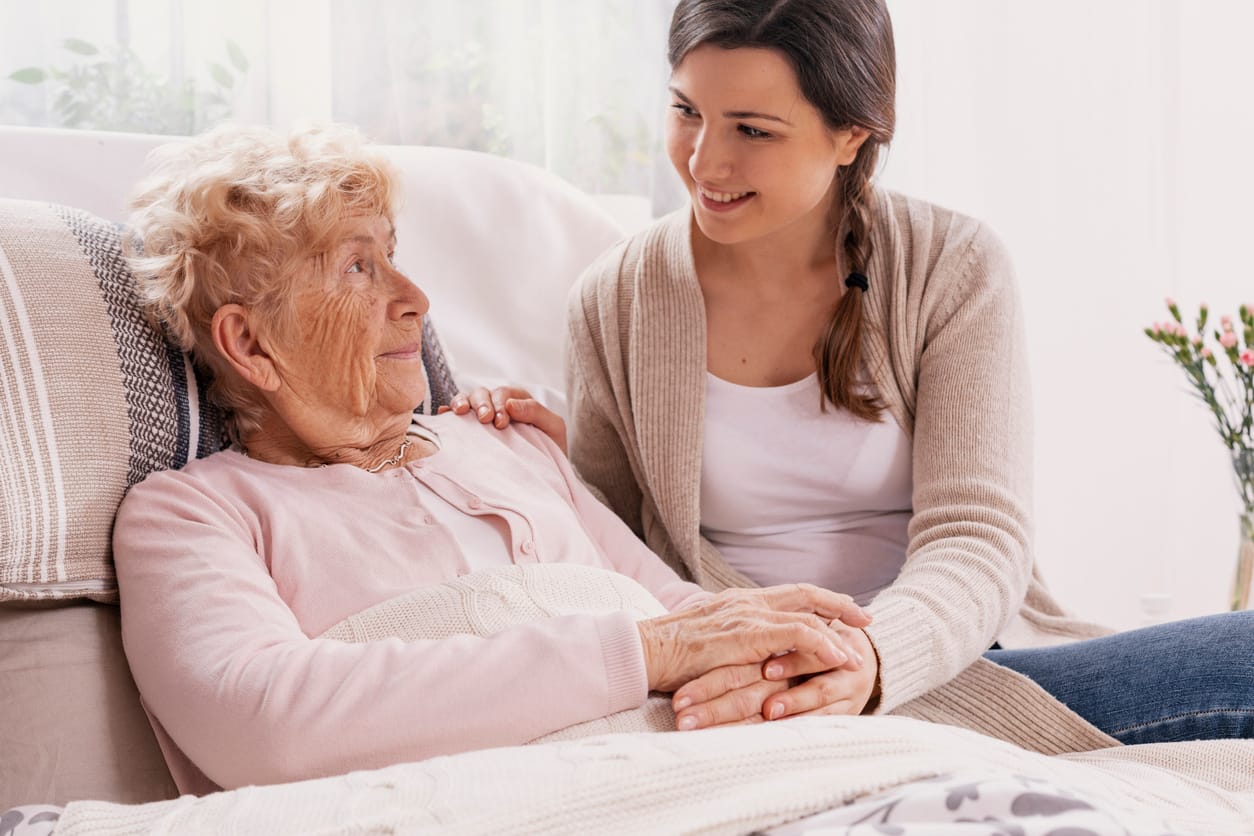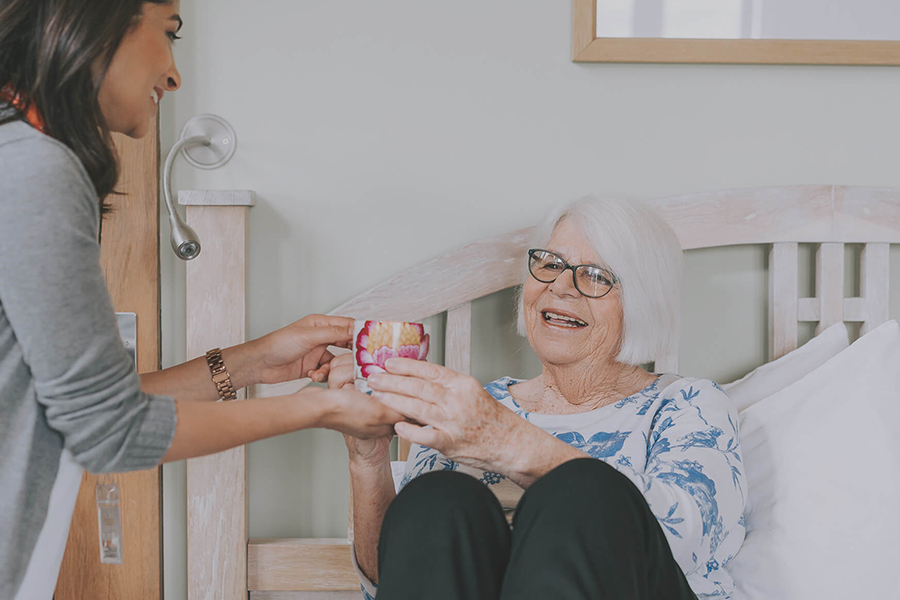As the colder months settle in and the days grow shorter, winter’s chill doesn’t just nip at your nose; it brings unique challenges for the elderly. Slippery pavements can increase the risk of falls, rising energy bills may make heating a home feel out of reach, and long days indoors can lead to feelings of isolation or boredom.
Together, these challenges can impact both physical health and emotional well-being, particularly for older adults who may already be vulnerable. But winter doesn’t have to be daunting. With a bit of thought and care, you can help your loved ones stay safe, warm, and well throughout the season.
Keep Moving to Stay Warm and Healthy
It’s tempting to settle in and stay put when the weather outside is bleak, but keeping active is so important—especially in winter. Movement not only generates warmth but also boosts circulation and helps ward off conditions like high blood pressure, which can be exacerbated by the cold temperatures.
If icy pavements make outdoor strolls risky, try encouraging movement indoors. Gentle stretches, walking to make a hot drink, or even some light tidying can keep both body and mind engaged. Activities like folding laundry, practising seated exercises, or even following along with a simple online chair yoga or dance video can make staying active more enjoyable.
Think of these small bursts of activity as mini winter warm-ups—they can do wonders for mood and mobility.
Fight Winter Loneliness


If getting out isn’t an option, consider ways to bring the outside world in. For those who may struggle with loneliness during the colder months, spending time with a caring companion—whether a family member, friend, or professional carer—can make a world of difference.
Sharing a chat over a warm cup of tea, playing a board game, or arranging a visit to a local memory café are all ways to stay connected and brighten the day. Sometimes, the best way to warm the heart is through good company and meaningful interaction.
Plan Ahead for Prescriptions
Winter illnesses and icy roads can make trips to the pharmacy difficult. To avoid last-minute stress, ensure your loved one has enough medication to last through bad weather. Many pharmacies now offer delivery services, so it’s worth checking what’s available locally.
It’s also a good idea to stock up on over-the-counter remedies, such as decongestants or lozenges, but it’s important to use them with care. Some decongestants may not be suitable for those with certain health conditions, such as high blood pressure or heart disease, so consulting a pharmacist or healthcare provider is essential.
Encouraging a flu jab is another effective way to help strengthen their immune system. Many local pharmacies offer vaccinations without the need for an appointment, making it straightforward to stay protected during the winter months. A professional Caregiver can help by collecting prescriptions or assisting with managing medications, giving you one less thing to worry about during the colder months.
Make Their Home a Warm Haven
Staying warm in winter isn’t just about comfort—it’s crucial for health, especially for older adults. Prolonged exposure to cold can increase the risk of hypothermia, exacerbate existing conditions like arthritis, and make respiratory illnesses harder to recover from.
However, concerns about rising energy costs can sometimes make turning up the heating feel like a difficult decision. Reassure your loved ones that their well-being comes first and explore financial support options, such as the Warm Home Discount Scheme. Local charities or organisations like Age UK may also offer advice or additional resources to help manage heating costs.
Taking some simple steps can also help make their home cosy:
- Layer up: Lightweight layers trap heat more effectively than one bulky jumper.
- Indoor accessories: Hats, scarves, and gloves aren’t just for outside—they can help fight the chill indoors.
- Curtains and windows: Close curtains at dusk and keep windows shut to retain warmth.
- Heating aids: Hot water bottles or electric blankets can provide extra comfort on colder nights.
With a little preparation, their home can be a snug retreat even on the frostiest days.
Hydration and Nutrition: The Unsung Winter Heroes
It’s easy to forget about drinking enough water in winter, but staying hydrated is just as important as in summer.


Dehydration can weaken the immune system, making it harder to fend off winter bugs. Warm drinks like herbal teas or hot lemon water are a great way to stay hydrated while also feeling comforted.
When it comes to meals, hearty and wholesome is the way to go. Soups, casseroles, and porridge not only provide warmth but also pack in essential nutrients. Make sure their diet includes plenty of fruits and vegetables, with at least one hot meal each day.
For those who find cooking challenging, seeking help from family members, local community services, or a professional carer can make all the difference in ensuring they stay nourished through winter.
Prevent Slips, Trips, and Falls
Icy paths and pavements can turn a simple outing into a hazardous adventure. Help protect your loved one by ensuring they’re prepared for the conditions. Sturdy footwear with non-slip soles is essential, and any wet shoes should be left at the door to prevent slippery floors indoors.
Inside the home, ensure floors are clear of clutter and that rugs are secured to prevent tripping. Adequate lighting is also vital, especially in hallways and staircases, to reduce the risk of falls in dimly lit areas. Consider installing motion-sensor nightlights to provide guidance during the evening and early morning hours.
Don’t forget outdoor spaces, either. Clearing driveways and pathways of snow and ice—or adding grit—can make a big difference. It’s also worth checking that mobility aids, like canes or walkers, are in good condition and fitted with anti-slip tips suitable for winter use. If steps or paths are particularly slippery, installing handrails can provide added stability and confidence.
Wrap Up for Winter Walks


Layers are key to maintaining warmth, and well-fitted shoes with non-slip soles are essential for icy paths.
If heading out after dark, wearing reflective strips or bright colours can help improve visibility and safety. The aim is to ensure your loved one feels secure and comfortable so that outdoor errands or walks remain manageable. Encourage them to wrap up warmly with a thick coat, gloves, a hat, a scarf, and cosy socks—making sure no skin is exposed to the cold.
Reflective elements on outerwear, such as strips or patches, can be particularly helpful for added safety in low-light conditions. These can often be found at outdoor shops, cycling stores, or even online retailers specialising in safety gear.
Professional Support This Winter
Winter can be a difficult time for older adults, with challenges like staying warm, eating well, and keeping connected to others. We’re here to help lighten the load, whether that means offering companionship, helping with meals, or ensuring prescriptions are ready when needed.
Our focus is on thoughtful, practical support that fits your loved one’s needs and makes the season easier for everyone.
If you’d like advice about keeping someone you care for safe and comfortable this winter, feel free to reach out to us. We’re happy to chat and help however we can.
Chloe joined us in early 2024 as our content manager. Having earned a first-class degree in digital marketing and spending more than six years in public relations, she’s well-placed to shape informative content and heartfelt stories that help inform our clients and connect them with the care they need.
Having worked across a multitude of different industries before care, Chloe’s passion lies in the meaningfulness of her work – from creating content that guides clients through their care journey to helping Caregivers find a rewarding new role.
At Unique, Chloe finds fulfilment in our supportive culture and the heart-warming stories from both clients and carers that highlight the impact of our services.



